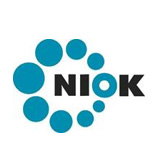
INFORMATION AND PROGAMME
Computational CATALYSIS – basic concept and practice
Location: Building Orion, Wageningen University
Date: May 25 (Thu) – May 26 (Fri) 2023
Organization team: Dr. Guanna Li (WUR), Dr. Nong Artrith (UU)
Motivation
As follow up to the CAIA course (Catalysis an Integrated Approach) NIOK offers now a successor of that course where you can deepen your understanding called “NIOK Advanced Topics in Catalysis”. This course consists of 4 independent modules which can be followed separately. These four modules are focused on 1) photo- and electrocatalysis (Costa Figueiredo, TU/e), 2) conversion of renewable feedstocks (Bitter, WUR), 3) computational catalysis (Li, WUR; Artrith, UU), and 4) advanced topics in molecular catalysis (De Bruin, UvA).
You as NIOK PhD student or postdoc are invited to this course but also external PhD/postdocs as well as colleagues from industry are welcome.
The attended and completed modules can be mentioned as such on the NIOK bull issued with the PhD degree. Certification of attendance to individual modules can be issued.
You are herewith invited for the third part of the course: computational catalysis – basic concept and practice. This course will be organized in lectures by experts from the field, coupled with hands-on practicals focused on basic operations in quantum chemical modeling as well as in machine learning techniques.
This two-day program will consist of two lecture sessions on quantum chemical simulation given by colleagues from TUDeflt (Pidko), VU (Bickelhaupt), UTwente (Banerjee); and machine learning by colleagues from UU (Artrith), U Leiden (Kroes) and CNRS (Smallenburg). Each session follows a 4-hour hands-on exercise given by Li (WUR) and Artrith (UU). Next to the lecture and practice, there will be time and room for poster presentations. A detailed program will be distributed in due time.
Target audience
Max. 50 participants PhD students /Postdocs /industrial participants.
Fee
The course fee will be 200 Euro.
Course content
- Lecture session 1 focused on DFT simulations in catalysis
- Practical 1
Practical 1 will be focused on the study of homogeneous and heterogenous catalytic systems using the density functional theory (DFT) method. During the exercises, participants will learn how to construct the reaction energy diagram of each type of catalytic reaction. Participants will be introduced to energy decomposition analysis to reveal the intermolecular interactions based on electronic structure calculations. Afterwards, the participants will conduct a case study to learn how to find the most stable conformation of a flexible molecular compound through an efficient local/global minimum search method. Microkinetic modeling based on DFT input will be performed to identify the activation barrier and rate-determining elementary step. Participants will be guided to calculate and analyze electronic properties such as density of states, bandgap and HOMO-LUMO orbitals of semiconductor materials. This practical will give participants a solid comprehension of using DFT simulations to solve their research questions in catalysis.
- Lecture session 2 focused on AI/ML techniques in catalysis
- Practical 2
In recent years, quantum chemical simulation methods have been complemented and enhanced by data-science and machine learning. This practical aims at providing experience of cutting-edge machine-learning techniques that are frequently used in materials chemistry. Upon completion of the practical, participants will have obtained basic working knowledge in the usage of public materials databases and machine learning frameworks. Practical examples will focus on inorganic crystalline materials and their surface science, though the methods taught are transferable to other materials classes as well. The participants will make use of public data, e.g., from the Open Catalyst project (https://opencatalystproject.org), for specific research examples, such as ethanol reforming (https://github.com/atomisticnet/ml-catalysis).
Tentative Schedule
Day 1
| 9.30 – 9.45 | Welcome and introduction |
| 9.45 – 12.45 |
Three lectures on DFT and machine learning with breaks
|
| 12.45 – 13.45 | Lunch |
| 13.45 – 17:00 |
Practical 1 – DFT simulations and data analysis, Guanna Li (WUR) (20min break in between) |
| 17:00 – 18:00 | Wrap-up day 1 & Poster with drink |
| 18.00 – 21.00 | Dinner |
Day 2
| 9.00 – 12.00 |
Three lectures on DFT and machine learning with breaks
|
| 12.00 – 13.00 | Lunch |
| 13.00 – 17.00 | Practical 2 (AI/ML): Nong Artrith (UU) (20min break in between) |
| 17.00 – 17.15 | Wrap-up day 2 and closing remarks |
Participants will be required to use their own laptop computers for the project work. Calculations will be performed on a high-performance computer cluster, but individual laptops are required for data analysis.

